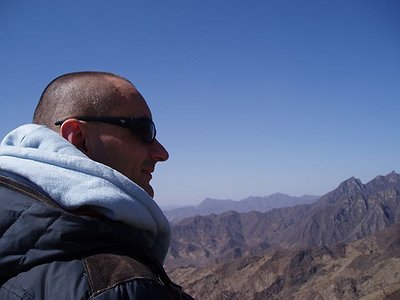Sense of independence
The relationship between music and other forms of art - painting, video art and cinema most importantly - has become increasingly important. How do you see this relationship yourself and in how far, do you feel, does music relate to other senses than hearing alone?
I commented already on the first bit of the question when I talked about my influences.
In answer to the second point, I don't believe music relates to any other sense but hearing. In my experience, every sense is independent. Part of my work consists of trying to keep this independence alive.
Music and visuals are not related, just like music and smelling is not related. Perceived in the same moment, yes. The industry is brutally trying to condition us, by establishing cliché and triggered response.
There seem to be two fundamental tendencies in music today. On the one hand, there is a move towards complete virtualisation, where tracks and albums are merely released as digital files. And, on the other, an even closer union between music, artwork, packaging and physical presentation. Where do you stand between these poles?
That close union sounds very nice to me.
The role of an artist is always subject to change. What's your view on the (e.g. political/social/creative) tasks of artists today and how do you try to meet these goals in your work?
My main job, as well as being an artist, is to try to overcome confusion. Confusion of mind, of sound, of image. Of course this is a very personal approach, and very likely it is a futile task. One would need to be a magician to succeed in such a task.
When working, I try to be clear and honest about myself. I do not mean the artworks to be a medicine, as I do not think one can heal confusion: it has a billion faces.
Music-sharing sites and -blogs as well as a flood of releases in general are presenting both listeners and artists with challenging questions. What's your view on the value of music today? In what way does the abundance of music change our perception of it?
Has it really become so challenging? I think I can spot something that speaks to me very easily, there is almost immediate recognition.
How, would you say, could non-mainstream forms of music reach wider audiences?
By becoming more mainstream?
Usually, it is considered that it is the job of the artist to win over an audience. But listening is also an active, rather than just a passive process. How do you see the role of the listener in the musical communication process?
The listener is the alpha and omega. Music that literally nobody ever listens to is pointless. The listener is the true creator. The composer is merely providing activation energy.
Reaching audiences usually involves reaching out to the press and possibly working with a PR company. What's your perspective on the promo system? In which way do music journalism and PR companies change the way music is perceived by the public?
It probably affects the sales, but not the perception.
Please recommend two artists to our readers which you feel deserve their attention.
The driver of those long freight trains, at night, creating a long and distant sound and enhancing the sonic horizon of the city with a glowing dark halo.
His workmate.
Read and hear more Köner www.koener.de






